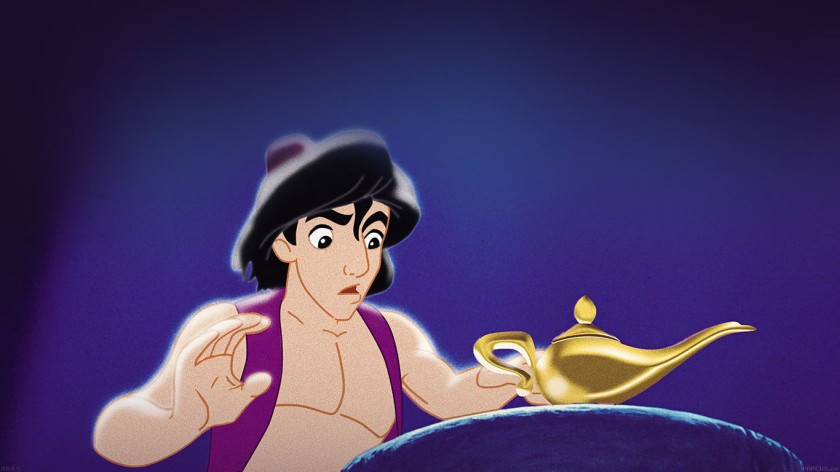What would this picture look like had it not been for the fierce resistance put up by the Eurasian land plate against the colliding Indian subcontinent 50 million years ago?
Featureless, flat… no soaring Mt. Everest — the crown jewel of the Himalayas.
What need would there be for a hawk’s great speed and keen eyesight if its prey were not swift and elusive?
Life itself would not exist at all without the gift of sunlight which is only made possible by the crushing force of gravity pressing against the core of our nearest star, the Sun.
No resistance, no soaring beauty. No opposition, no flourishing life.
And yet, humans seem unable or unwilling to accept this fundamental principle and further seek to shield children from hardship and suffering. All at a heavy price: the tragic loss of the nobility of their spirit.
In our misguided effort to pave for children a frictionless road to the land of plenty, we are raising a generation of weak and feckless individuals addicted to instant gratification and expecting a trophy just for getting out of bed. By the time they take their first step, we tell them they’re special… so, so special! Good thing they don’t ask us why, for we would be hard-pressed to give them a valid and useful answer.
Snowflakes are not special. What they are is unique. They all start their journey as tiny ice crystals high in Earth’s atmosphere, indistinguishable from one another. Their singularity is shaped by the path each one crosses and by what they encounter on that path.
In the womb, every child is indistinguishable. At an early age, they begin to manifest a unique temperament. Their character, however, just like a snowflake, will be forged by their journey through life. The greater the challenge and resistance, the stronger, more creative, resourceful and magnificent they’ll become. Muscles, mind you, grow stronger when swimming upstream.
Hard times create strong men; strong men create good times. Good times create weak men; weak men create hard times. — Michael Hopf, ‘Those Who Remain’
Our job, then, is not to remove obstacles, but to teach children how to sharpen their swords. Rather than preparing the path for the child, we must prepare the child for the path.
A child unschooled in the fundamental principle of resistance in nature will see challenges as overly daunting, unfair, and unwelcome. Which is why my book for boys begins by exposing them to this fundamental reality.
I tell them “our universe is like one ginormous, never-ending fireworks display. An enchanted story of beauty and creativity as well as extreme violence and destruction. That’s what makes it such a good story. A fairy tale without thunder and lightning, or without epic battles or fiery dragons, would not be a good story no matter how pretty the princess is.”
The origins and evolutionary story of humankind are next presented to develop in the young boy’s mind a sense of gratitude in the face of the improbability of our presence on Earth; a sense of humility when considering how recent humans emerged on the cosmic stage, and to dwell on the unique opportunity we have as the only species capable of reflecting the universe’s beauty, and the choice, either to continue spoiling the cosmic story, or contribute to its magnificent unfolding.
“…even though humans might be secondary characters in the story of the Universe, we are the only ones telling the story as far as we know. We’re the ones sending telescopes into space to take pictures of the dazzling spectacle and then watching them with mouths open and dropped jaws — sometimes with tears of wonder in our eyes — because we can’t get over how elegant and graceful everything is. Just like the magic mirror in Snow White, we’re like the mirrors upon which the Universe can finally reflect itself and see how beautiful it is. We are the Universe’s best ‘selfie.’ That’s awesome! Because it means we now have the opportunity and responsibility to make sure we continue making it a wonderful story. It’s like we’ve been given a beautiful garden to care for and must decide whether to be bees, or locusts.
Bees pollinate and make gardens flourish. Locusts are mean, rapacious, and ravenous grasshoppers who swarm into a garden, destroy it, then fly off to look for the next field to consume. They’re like those death-dealing aliens in science fiction stories who go from planet to planet laying waste to all life to feed their insatiable appetite.”
I then narrate our species’ life as hunter-gatherers during the 99% of the time modern humans have been present and thrived on Earth. This I do with two objectives: to introduce them to the Life Force of Grit, and, to underscore how being out in nature helped us develop our creative imagination, social intelligence, and survival and adaptation skills. It also serves as a precautionary warning against under-nourishing these intrinsic traits and skills with a steady diet of media and video games.
“We moved all the time and learned to read the land — the jungles, forests, mountains, oceans and streams — by being closely connected to Earth. We learned to adapt to different terrains and climates. We were fit, adventurous, rugged, healthy, eating different kinds of food which helped our brains grow larger to the point of sparking something no other animal appears to have: a creative imagination!
(…)
For 99% of modern human history, or, like forever, we kept living as hunter-gatherers, roaming the Earth with our 30 or 50 clan members, carrying very little, owning nothing but the animal skins which protected us from the elements, our stone tools, light hunting weapons, cooking vessels, and our inventiveness. We survived through scary droughts and bitter ice ages. We were, and still are, a gritty species. The Life Force of Grit is one we all have but few choose to use. Above all the other life forces, Grit is the one you never want to do without.”
To capture a young boy’s imagination and cement in his mind the value of the Life Force of Grit, I make use of metaphor, followed by a familiar story with which they can identify.
Here’s what I tell them:

To polish rocks, you need sandpaper, which comes in different degrees of grit — from really coarse to superfine. Rocks don’t like being polished. In fact, they hate it! That’s why you hear a harsh, scraping sound when you rub sandpaper on their surface. They are the same sounds as the groans, huffs, and deep sighs we make when learning something new, like riding a bike. If we give up then, we will accomplish nothing.
If you want to be a great soccer player, cook or musician, for example, you better be ready and willing to endure a lengthy period of harsh training.
Having things easy makes everything flat and dull.
Just to see what would happen if we remove this resistance, let’s pretend you and I are Masters of the Universe and rule over nature. We’ll go out on an open field to conduct an experiment with a hawk and a mouse.
Circling above us, is the hawk, scanning the ground below in search for his next meal. Natural selection has developed in the hawk a flying speed of 120 mph, reaching 180 mph when diving for its prey. Its eyesight is eight times more powerful than the sharpest human eye. Truly a magnificent and noble creature! Suddenly, he spots a mouse. Easy lunch, one would think. But nature has made mice extremely agile and elusive, so an exciting chase is about to begin.
Since we are Masters of the Universe and control the levers of nature, let’s see what happens if we slow the mouse down a bit. To make it even easier for the hawk to find him, we’ll also gradually change the mouse’s color from camouflage brown, to neon pink. Naturally, the need for the hawk’s great speed and powerful eyesight will diminish step by step.
Let’s drop the mouse’s speed even further so that the hawk no longer needs to fly, but simply — like a chicken — give chase to the mouse on solid ground.
What will happen if we continue this experiment for the ‘benefit’ of the hawk? What if we slowed the mouse’s speed to a bare crawl? Care to guess?
In time, the once-majestic hawk would lose its wings, be almost blind, and simply lie on the ground waiting for the mouse to crawl into his open beak. Naturally, the unintended consequence of our experiment is that the hawk, in its weakened state, would become easy prey for a hungry coyote.
What have we done, young man!
By making it ‘easy’ for the hawk, we have turned him into something other than a hawk. We have taken away his power, his beauty and nobility, and made him dull.
Written in the software of what it is to be ‘Hawk’ is the need for the speed and stealth of ‘Mouse.’
Best not to mess with the laws of nature.
Nowadays, you hear a lot of young people saying things are hard, wishing someone would make things easier for them. They sound like hawks cursing at nature for making mice so speedy and elusive.
Now let’s suppose you were walking on a beach and stumbled upon a weatherworn and rusted oil lamp. Since you’ve probably seen the movie ‘Aladdin,’ you know what’s inside, so you pick it up and rub it hard with the palm of your hand.
Poof! A Genie appears.
Only this time, he won’t grant you three wishes, but only one; the one the Genie has already chosen for you. You can either accept his offer, or not.
From that day forward, the Genie promises you will never again feel challenged, rejected, sad, afraid, anxious, hurt, disappointed, or betrayed. What’s more, you will instantly forget all the bad things that ever happened to you. If fact, all your previous memories would be erased — both good and bad. From that moment, your days will be all sunshine and rainbows. No more storms, thunder, and lightning. No more obstacles or difficult challenges.
Would you accept the Genie’s ‘gift’?
Since you’ve already read about the rule of opposites governing the Universe… the one that says that for there to be light there must be darkness — meaning joy is not possible without suffering — and since you’ve made it all the way to this point in the book, you’ve proven yourself to be smart and gritty so I’m certain you’d reject the Genie’s offer, push him back into the lamp and throw it back into the ocean never to be rubbed again.

Before Covid-19 struck our world, the outlook for boys was already grim. We’re now confronting a more formidable challenge. If there ever was a right time to fortify a boy’s psyche and gird his soul, surely this is it. To succeed in the world of their future, they will need every tool in the survivalist toolbox.
Teaching them to face hardship — with courage and grit — and preparing them for the road ahead are the greatest gifts we can give them.
Jeffrey Erkelens is the creator of ‘The Hero in You,’ a book for boys (10–13) meant to guide them toward an evolved expression of manhood and help them develop the character strengths needed to lead spirited lives of noble purpose. Sign up here to receive updates on the book’s upcoming publication.
Related articles:
You’ll Figure it Out – The Life Force of Clear-Eyed Optimism


